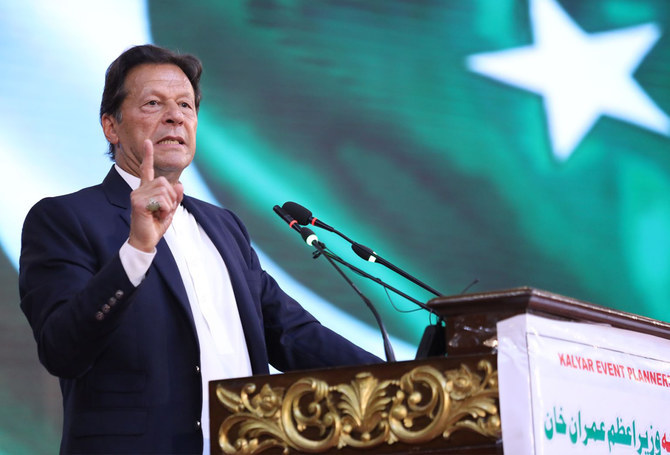ISLAMABAD: Prime Minister Imran Khan on Tuesday stopped lawmakers belonging to the ruling Pakistan Tehreek-e-Insaf (PTI) party from attending the National Assembly session wherein a no-confidence resolution against him will be put to a vote.
Khan is facing his toughest political challenge since assuming office in 2018 as the opposition tabled the no-confidence motion against him in the national assembly on Monday. A debate on the resolution will start on March 31.
With more than a dozen PTI lawmakers demanding to attend the session and vote “according to their conscience,” the prime minister issued specific instructions to his party members to abstain from voting in a detailed letter while reminding them of Article 63-A of the constitution that deals with disqualification of lawmakers in the case of defection and violation of party policy.
“All the members of the Parliamentary Party of Pakistan Tehreek-e-Insaf in the National Assembly of Pakistan shall abstain from voting/ not attend the meeting of the National Assembly on the date when the said resolution is setout on the agenda of the National Assembly for voting,” the document said.
It maintained that only “duly designated” parliamentarians of the ruling party would speak on its behalf during the debate over the motion.
“All members are required to adhere to these directions in true letter & spirit and keep in mind the intent behind the provision of Article 63-A of Constitution of Pakistan, 1973,” it continued.
The letter stopped all PTI members from violating these instructions or extending any favor related to the no-trust vote to any other group or parliamentary party.
“Every / any violation of these directions shall be treated as express defection in terms of Article 63-A,” it warned.
The government has already submitted a presidential reference in the Supreme Court of Pakistan, seeking the interpretation of Article 63-A, after at least 13 PTI lawmakers indicated they could vote against the prime minister.
The reference requested the court to give its opinion on whether a defector should be disqualified for life from electoral activity or public office and if his or her vote, after defecting, should be counted in a parliamentary motion.
















